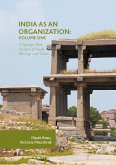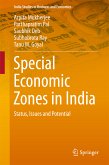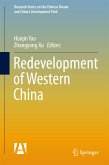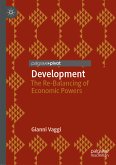Chapters consider the stresses placed on India's organisation by the shocks of the twentieth century, from its experiments with a socialist economy to its embrace of the Washington consensus in the 1980s. The impact of the invasion of China in 1962and India's struggle to find its feet post-partition are also given detailed analysis. The book's unique perspective helps to shed light, for the first time, on how India's organisational structure negotiated the country's immense historical and cultural inheritance with the stresses of a twentieth century nation state. The authors consider what lessons can be drawn from India's successes and failures at aligning its goals and organisations with its heritage and mission
Dieser Download kann aus rechtlichen Gründen nur mit Rechnungsadresse in A, B, BG, CY, CZ, D, DK, EW, E, FIN, F, GR, HR, H, IRL, I, LT, L, LR, M, NL, PL, P, R, S, SLO, SK ausgeliefert werden.









